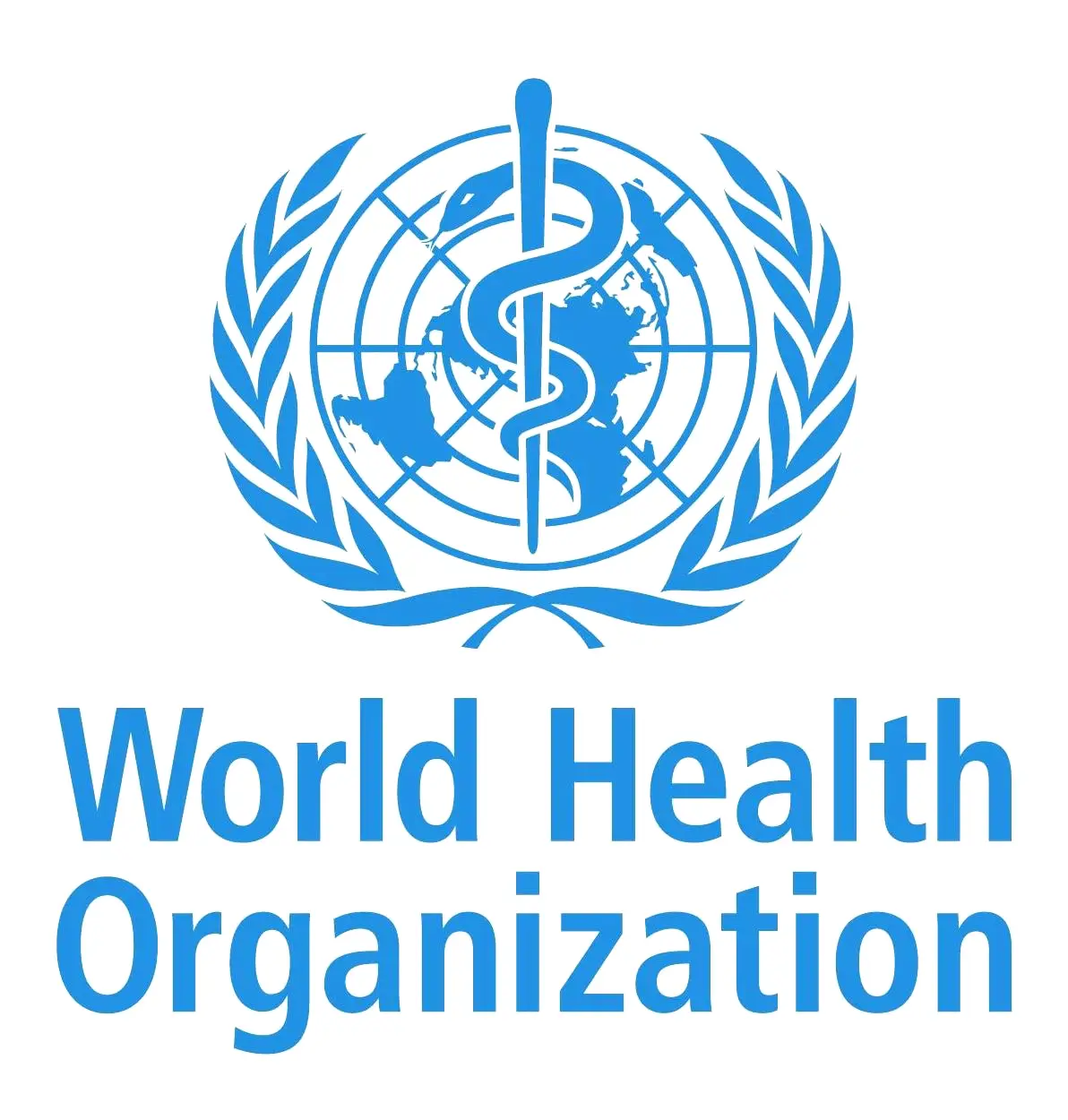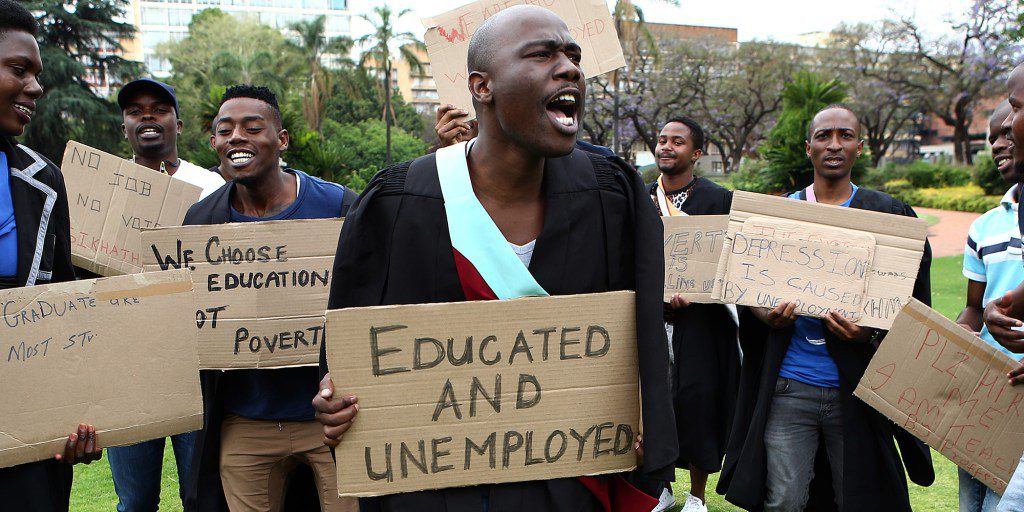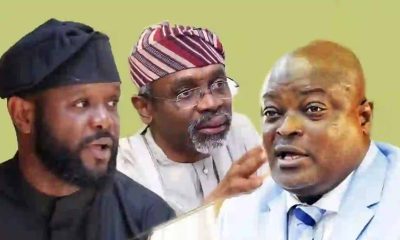Business
WHO reports global shortfall in mental health investment

The World Health Organisation’s (WHO) new Mental Health Atlas paints a disappointing picture of a worldwide failure to provide people with the mental health services they need.
In a statement made available on Saturday, it said it happened at a time when the COVID-19 pandemic was highlighting a growing need for mental health support.
“World misses most 2020 mental health targets; extension of WHO Mental Health Action Plan to 2030 provides new opportunity for progress reading time, four minutes (1003 words).
“The latest edition of the atlas, which includes data from 171 countries, provides a clear indication that the increased attention given to mental health in recent years has yet to result in a scale-up of quality mental services that is aligned with needs,” the global health agency said.
According to WHO, the Atlas is a compilation of data provided by countries around the world on mental health policies, issued every three years.
Others are legislation, financing, human resources, availability and utilisation of services and data collection systems.
According to the global health body, it is also the mechanism for monitoring progress towards meeting the targets in WHO’s Comprehensive Mental Health Action Plan.
“It is extremely concerning that, despite the evident and increasing need for mental health services, which has become even more acute during the COVID-19 pandemic, good intentions are not being met with investment.
“We must heed and act on this wake-up call and dramatically accelerate the scale-up of investment in mental health, because there is no health without mental health,” it quoted Dr Tedros Ghebreyesus, the Director-General of WHO, as saying.
The statement said that none of the targets for effective leadership and governance for mental health, provision of mental health services in community-based settings, mental health promotion and prevention, and strengthening of information systems, were close to being achieved.
It said that in 2020, just 51 per cent of WHO’s 194 member states reported that their mental health policy or plan was in line with international and regional human rights instruments, way short of the 80 per cent target.
It said that only 52 per cent of countries met the target relating to mental health promotion and prevention programmes, also well below the 80 per cent target.
WHO noted that the only 2020 target met was a reduction in the rate of suicide by 10 per cent, but even then, only 35 countries said they had a stand-alone prevention strategy, policy or plan.
It said that steady progress was evident, however, in the adoption of mental health policies, plans and laws, as well as in improvements in capacity to report on a set of core mental health indicators.
It said that, however, the percentage of government health budgets spent on mental health has scarcely changed during the last years, still hovering around two per cent.
Business
PH refinery: 200 trucks will load petroleum products daily, says Presidency

PH refinery: 200 trucks will load petroleum products daily, says Presidency
No fewer than 200 trucks are set to load petroleum products at the government-owned Port Harcourt Refinery, the presidency has said.
A presidential spokesperson, Sunday Dare, made this known in a statement through his official X handle on Tuesday.
Newstrends had reported that the Nigerian National Petroleum Company on Tuesday announced that Port Harcourt Refinery has resumed operations and crude oil processing after years of inactivity.
READ ALSO:
- US-based Nigerians get 30-year sentence over $3.5m romance scam
- 4 Nigerians arrested in Libya for alleged drug trafficking, infection charges
- BREAKING: Port Harcourt refinery begins operation
Reacting, Dare said, “200 trucks are expected to load products daily from the refinery, Renewing the Hopes of Nigeria.”
He added that “the Port Harcourt refinery has two wings.
“The Old Refinery comes on stream today with an installed production capacity of 60, 000 barrels per day of crude oil.”
PH refinery: 200 trucks will load petroleum products daily, says Presidency
Business
Breaking: CBN increases interest rate to 27.50%

Breaking: CBN increases interest rate to 27.50%
The Central Bank of Nigeria (CBN) has raised the lending interest to 27.50 per cent from 27.25 per cent.
This latest increase in the Monetary Policy Rate came after a meeting of the Monetary Policy Committee (MPC) of the Central Bank of Nigeria (CBN) on Monday and concluded Tuesday.
The Monetary Policy Rate measures the benchmark interest rate.
The CBN Governor, Yemi Cardoso, announced this in Abuja on Tuesday after the MPC meeting, last for the year, held at the apex bank’s headquarters.
He said the MPC voted unanimously to raise the MPR by 25 basis points from 27.25% to 27.50%; and retain the Cash Reserve Ratio (CRR) at 50% for Deposit Money Banks and 16% for Merchant Banks.
The CBN governor also said the MPC retained the Liquidity Ratio (LR) at 30% and Asymmetric Corridor at +500/-100 basis points around the MPR.
Business
Nigeria’s unemployment rate dropped to 4.3% in Q2 – NBS

Nigeria’s unemployment rate dropped to 4.3% in Q2 – NBS
Nigeria’s unemployment rate stood at 4.3 per cent in the second quarter of 2024, the National Bureau of Statistics (NBS) has said in its latest report.
The report released on Monday said the unemployment rate decreased compared to the 5.3 per cent recorded in the Q1 of 2024.
The NBS defined the unemployment rate as the share of the labour force (the combination of unemployed and employed people) who are not employed but actively searching and are available for work.
“The unemployment rate for Q2 2024 was 4.3%, showing an increase of 0.1 percentage point compared to the same period last year,” the report stated.
“The unemployment rate among males was 3.4% and 5.1% among females.
“By place of residence, the unemployment rate was 5.2% in urban areas and 2.8% in rural areas. Youth unemployment rate was 6.5% in Q2 2024, showing a decrease from 8.4% in Q1 2024.”
Report also said the unemployment rate among persons with post-secondary education was 4.8 per cent; 8.5 per cent among those with upper secondary education, 5.8 per cent for those with lower secondary education, and 2.8 per cent among those with primary education in Q2 2024.
Employment rate – 76%
The report showed that the employment-to-population ratio, which measures the number of employed workers against the total working-age population, increased to 76.1 per cent in Q2 2024.
“In Q2 2024, 76.1% of Nigeria’s working-age population was employed, up from 73.1% in Q1 2024,” the report stated.
Self-employment – 85.6%
The report further showed that Nigeria’s labour market saw a notable shift as the proportion of self-employed individuals increased in Q2 2024.
It stated, “The proportion of persons in self-employment in Q2 2024 was 85.6%.”
-

 metro11 hours ago
metro11 hours agoBREAKING: Port Harcourt refinery begins operation
-

 Business2 days ago
Business2 days agoJust in: Dangote refinery reduces petrol price for marketers
-

 metro1 day ago
metro1 day ago40-foot container falls on car in Lagos
-

 Politics2 days ago
Politics2 days ago2027: Lagos Speaker, Obasa joins gov race, may battle Seyi Tinubu, others
-

 Politics1 day ago
Politics1 day agoLagos 2027: Seyi Tinubu campaign team releases his life documentary
-

 International1 day ago
International1 day agoTrump to sack 15,000 transgender officers from U.S. military: Report
-

 Entertainment1 day ago
Entertainment1 day agoPolygamy best form of marriage for Africa – Okey Bakassi
-

 metro1 day ago
metro1 day agoPolicewoman dismissed in Edo threatens to kill children, commit suicide


